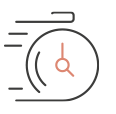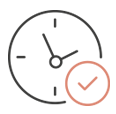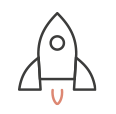In an attempt to create a more personalized, student-focused mathematics and science teaching, the foundation has turned to academic institutions to develop diagnostic assignments tailored to the curriculum and based on research on typical learning difficulties. A series of projects at the Weizmann Institute, Tel Aviv University, and the University of Haifa are currently in advanced stages of development and testing. The feedback received from the field is that implementation in classrooms is more difficult and complex than anticipated.
Outstanding teachers report that implementation of diagnostic teaching requires a very significant time investment, which makes it nearly impossible to put into practice. They add that the information received from the diagnostics provides them multiple data on the progress of their class; however they claim that they do not know how to use this information to adapt their teaching to each student. In practice, they use the data only to shed light on the progress of the entire class and modify their teaching in a plenary discussion or in sub-groups, and almost never with individual students.
The diagnostics programs that developed the assignments are now at a crossroads regarding implementation. Some of them train coaches who work with teachers to help them with execution, while others invest in developing handbooks and kits for teachers on how to use the outputs of the tests in their classes. They are bewildered however, by how to perform individual customizing, and some even question whether such adaptation is plausible or necessary. For the foundation’s strategy, which emphasizes the clinical expertise, to give up on the individual response means walking away from the very essence of clinical teaching.
The proposed program is an attempt to break the impasse we have reached using conventional routes to implementing personalized clinical teaching. The heart of the suggested attempt would be a “challenge” which will invite competing teams to find an “outside the box” solution. The desired solution will be one that allows the teacher in a regular five-unit class to construct a “personalized learning plan” for each of their students based on ongoing data coming from diagnostics. The solution needs to be practical and realistic, deep and sophisticated in its data, while simple and easy to use by teachers, requiring them to invest reasonable time and effort.
The challenge system is an innovative approach that is increasingly being used to seek solutions to problems that have not yet been solved. It will launch with a call for proposals open to anyone who believes they can address the need – universities, educational organizations, start-ups, school networks, as well as teacher and student teams. The teams will compete for prizes totaling 2 million NIS over a course of two years. The process will be documented and evaluated throughout, and the whole process will enjoy media coverage in order to provide exposure to the effort and the results.
The challenge competition will be orchestrated by the 8200 Alumni Association, which is a not for profit volunteer-based organization that brings together graduates of the elite technological unit. The association is experienced in running similar efforts, such as operating a Startup Accelerator, encouraging technological entrepreneurship to solve social and educational problems. The association will hire a project manager and will appoint a professional committee that will refine the selection and winning criteria.
During the first phase, the committee will choose the ten most promising teams. Each team will receive 50,000 NIS to prepare a prototype for testing in one class. In the second stage, based on performance, five teams will be chosen to receive 100,000 NIS to prepare their program for larger scale implementation. The third phase will select the winning team, which will be awarded 1,000,000 NIS and be expected to implement its program in 30 five-unit classes in schools in the social periphery of Israel for three years free of charge.
* The text above shows the grant as approved by the Foundation’s Board of Directors / Grant 238



